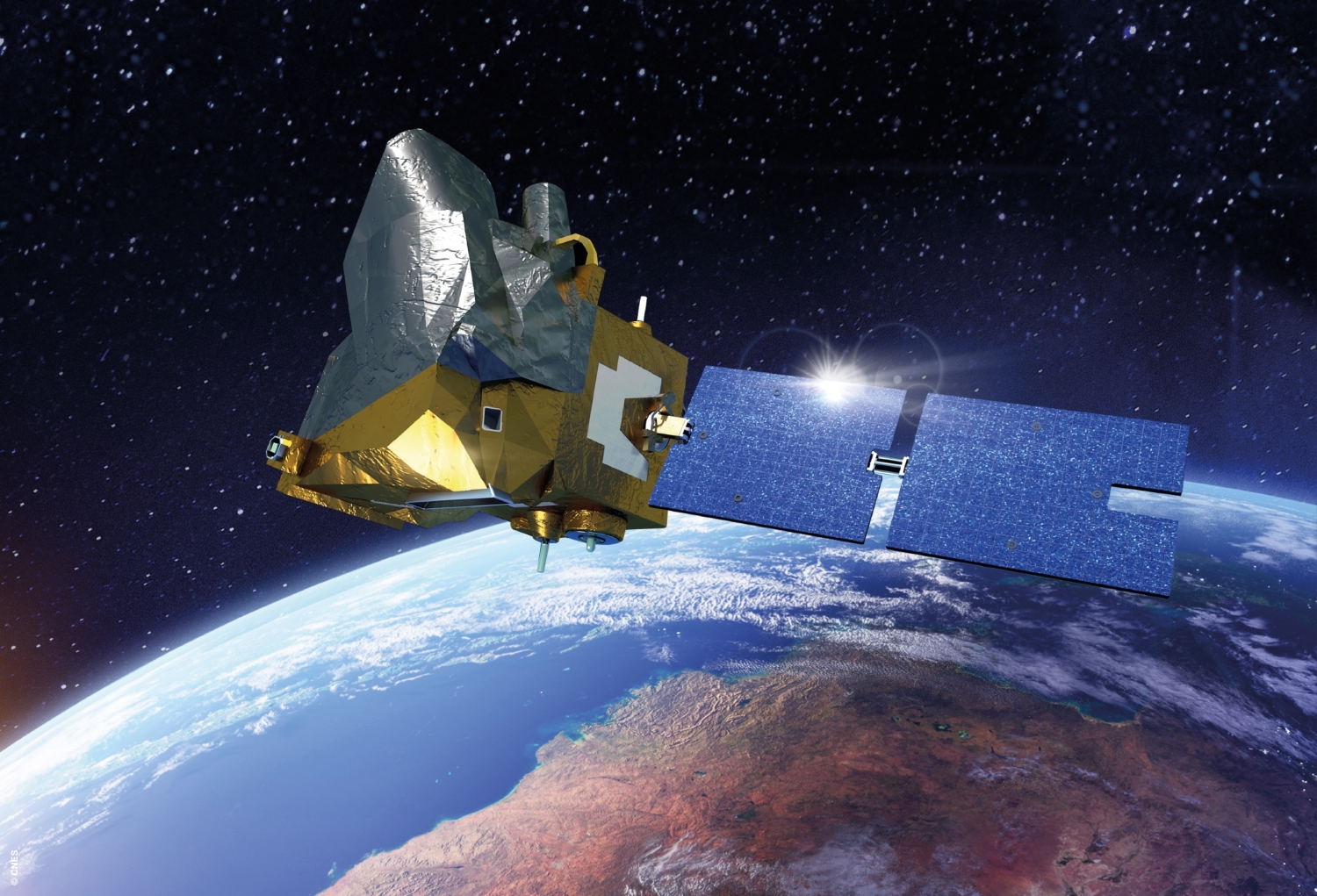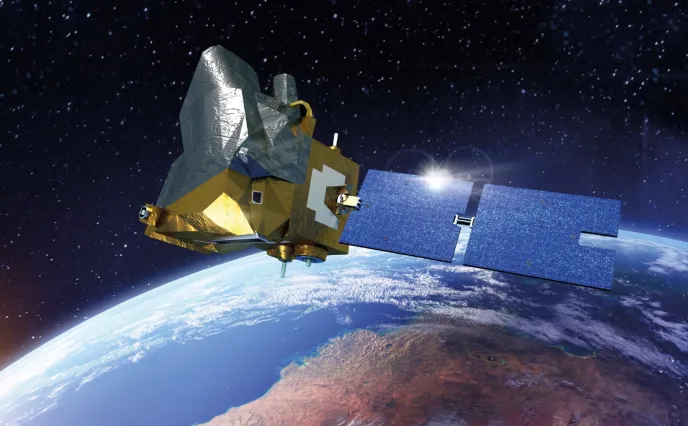- A joint collaboration between France and the UK to map, on a global scale, the sources and sinks of carbon dioxide; the main greenhouse gas caused by human activity.
- MicroCarb will show how space-based science can improve our understanding of the vital carbon cycle and contribute to informed climate policy decisions to help protect our planet.
- Thales Alenia Space was responsible for the assembly, integration and testing of the satellite platform as well as launch preparations.
Cannes, July 26, 2025 – The scientific mission MicroCarb, led by the French space Agency CNES, was successfully launched from Europe’s Spaceport in Kourou, French Guiana.

MicroCarb © CNES
MicroCarb is a joint mission between the UK Space Agency and French Space Agency, Centre National d’Études Spatiales (CNES), serving as the prime contractor. The mission is co-financed by these two agencies, as well as by the European Commission and the French government within the framework of the Investments for the Future Program (PIA), managed by the National Research Agency (ANR). The satellite is designed to precisely map atmospheric carbon dioxide (CO₂), capturing detailed data on emissions from human activities as well as absorption by natural sinks such as oceans and forests.
The satellite is built on the CNES Myriade platform. Thales Alenia Space, a joint venture between Thales (67%) and Leonardo (33%), completed the assembly, integration, and testing of the satellite platform at RAL Space in Harwell, UK, and was responsible for launch preparations. Airbus Defence and Space provided the instrument payload, the infrared spectrometer.
MicroCarb will operate in low Earth orbit, at an altitude of 650 km, and serves as a precursor to the European Union’s Copernicus Anthropogenic Carbon Dioxide Monitoring (CO2M) mission – a constellation of three satellites, with payloads supplied by Thales Alenia Space, which will deliver precise measurements for human-induced atmospheric carbon dioxide and methane. MicroCarb complements the CO2M mission by providing early observations and valuable data, enhancing our capability for CO₂ and methane monitoring to inform climate policy makers.
Additionally, a special city-scanning mode will enable the mapping of CO₂ distribution within urban areas, which are responsible for the majority of global emissions.
Richard Thorburn, CEO of Thales Alenia Space in the UK, commented, “I am immensely proud of the contribution our teams in the UK and France have made to MicroCarb - Europe’s pioneering satellite for mapping carbon dioxide on a global scale. Huge thanks to CNES and to the UK Space Agency for the trust they have placed in us, enabling Thales Alenia Space to play a key role in advancing Europe’s leadership in climate monitoring and environmental science, and helping to protect our planet.”
About THALES ALENIA SPACE
Drawing on over 40 years of experience and a unique combination of skills, expertise and cultures, Thales Alenia Space delivers cost-effective solutions for telecommunications, navigation, Earth observation, environmental monitoring, exploration, science and orbital infrastructures. Governments and private industry alike count on Thales Alenia Space to design satellite-based systems that provide anytime, anywhere connections and positioning, monitor our planet, enhance management of its resources, and explore our Solar System and beyond. Thales Alenia Space sees space as a new horizon, helping to build a better, more sustainable life on Earth. A joint venture between Thales (67%) and Leonardo (33%), Thales Alenia Space also teams up with Telespazio to form the Space Alliance, which offers a complete range of solutions including services. Thales Alenia Space posted consolidated revenues of €2.23 billion in 2024 and has more than 8,100 employees in 7 countries with 15 sites in Europe.


